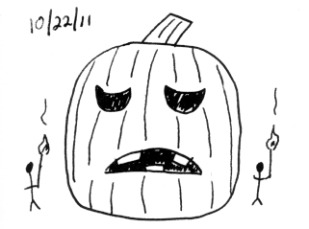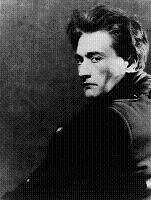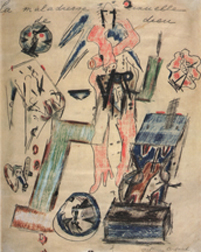*This was originally submitted to Round 7 of the NPR Three Minute Fiction contest* It didn’t win.
They came in on a mid-afternoon train from Boston to Mystic, stowed away in the dark folds of Ginny’s unmentionables deep within her suitcase. She was excited to see her boyfriend after a month in Europe, but not nearly as excited as the guests she was unwittingly transporting from the bay-side hotel she stayed in after her long flight from Paris. The hunger-bubbles in the bellies of her stowaways were growing, and there was only one thing that would appease their appetite, and that was blood, tasty human blood.
It’s not that this multi-generational, extended family wasn’t happy living in Ginny’s dirty laundry, but they all were looking forward to a new place to stay and a hot meal. Even bedbugs enjoy a little travel and some foreign food once in a while. Luckily for them, since Ginny’s boyfriend, John, lived in the house in the middle of the train station parking lot, both was only a short walk away.
Ginny and John were in the middle of a whirlwind spring-fling turned summer-romance when Ginny’s job sent her off to Paris to cover the goings-on surrounding fashion week. For a month she bounced around from party to party, hotel to hotel, hobnobbing with the fashion elite, updating her renowned fashion column with candid pictures, and all the racy behind the scenes details she encountered along the way. Naturally jealous, John could barely handle her going away so soon after they met, but the numerous pictures she posted every day of herself and all those chiseled male models really wound his guts into tight, sickening knots.
John was excited to see Ginny, and by the time she’d unloaded her suitcase onto his bed, sorting the dirty clothes from the clean, his urge to lustfully pounce upon her won out over the jealousy that was simmering inside him, but just barely. The bedbugs, now more terrified than hungry, quickly scattered to the safety of their new-found home in John’s bed. As the late afternoon sky dimmed to a pale blue, the two of them indulged in each other passionately, a mix of animalistic rawness and pristine, young love. By the time the sun had fully set, the two of them laid spent, a tangle of limbs and twisted sheets, each reliving the afternoon in quick flashes and silly grins.
Soon, however, John’s jealous mind got the best of him, and his blissful bedroom cooing was replaced with a litany of questions, each more pointed than the last. Ginny bristled and pulled herself away from John, and the hungry bedbugs took a chance and began to make their way to a much needed supper. As Ginny angrily packed her suitcase, John’s jealousy became remorse, and John’s legs became a banquet for his still undiscovered guests.
By the time Ginny and John were done screaming at each other, the bedbugs were plump with blood and quite content with their new home. By the time Ginny was on the next northbound train, John began to realize that his jealous demeanor and short fuse made him a bachelor once again. At the same time, a bite from one of his new bedbug buddies began to burn and itch. Weeks later, John figured out why his sheets were covered in little dots of blood, and it was longer, still, before he made the connection that each fresh bite may be a tasty bit of karma for the way he treated Ginny. Sometimes life’s lessons are lost, sometimes they linger in the dark and bite you when you least expect it.





